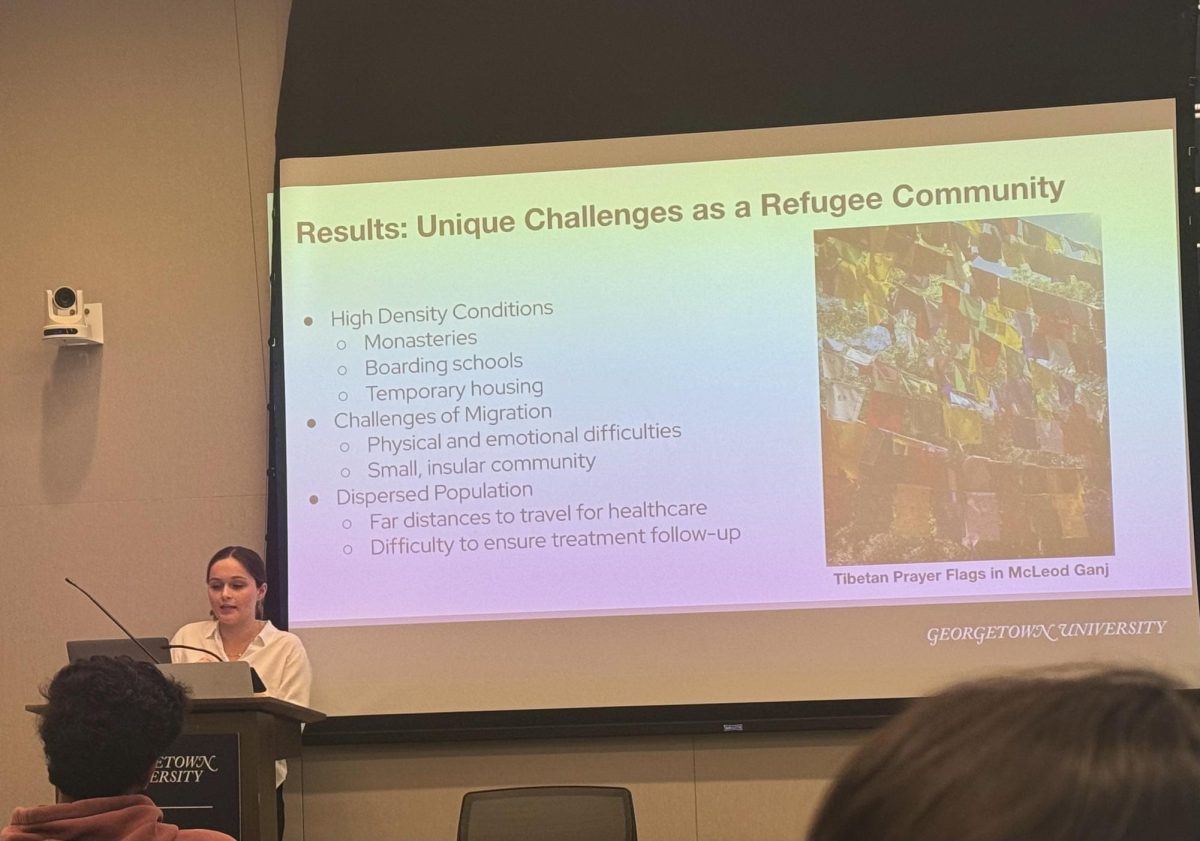Many of us dread the inevitable question from our relatives and family friends: “What do you plan to do after college?” Narrowing your interests to a single major is challenging enough, and deciding the direction of a 40-yearlong career path can seem impossibly restrictive.
While some individuals have known since birth what they want to do, others change their minds several times during high school and college.
As such, the saying “a leopard cannot change its spots” does not apply to everyone — after all, how many of us have held onto our childhood dreams of becoming an astronaut, or even wanted to work in the career we envisioned for ourselves when we started college? Georgetown allows us to change our majors and transfer schools because our interests and goals shift during our four years on the Hilltop.
But how many college students actually switch majors? According to a 2014 study by the U.S. Department of Education, one-third of students change their majors at least once during their first three years of college, and 9 percent switch two times or more. But the majority of us stick to one academic track.
This is not the case for students in all majors, however; 52 percent of students who major in mathematics will switch to a different major. While math is the only major that loses more than half the students who initially enroll, a greater proportion of students within science, technology, engineering and math fields change their majors than students who study non-STEM subjects. Although the likelihood that students will stick with their major varies across fields, nearly all majors have at least a 60 percent retention rate for students who initially enroll.
Given that only one-third of students switch majors, how many make the more drastic change of switching schools? Georgetown does not publish its transfer-out rates, but nationwide, 22 percent of students who attend schools like Georgetown — full-time, four-year, private nonprofit institutions — transfer to a different college or university. So while we have the option to change, more than 75 percent of us choose to stay where we are.
Even if you are a four-year Hoya and stick with the major you declared in your college application, you may change your direction entirely when you start your career. A study by the Federal Reserve Bank of New York found that most college graduates do just that; in fact, 72.7 percent of employed college graduates are working in jobs not related to their majors. A survey by CareerBuilder presented more modest figures, claiming that just under half of college grads took a first job unrelated to their majors; only 32 percent have never found a job in the field they studied.
The choice to pursue a career outside your major subject, switch majors or transfer schools does not always stem from a change in interests. Economic factors can also play a role — the number of job openings in your field, the projected earnings for a given major or the cost of tuition at one school compared to another may compel us to change our academic tracks or career paths. And 36 percent of college graduates wish they had chosen a different major.
So it is no wonder we find it difficult to say where we will end up after college. More likely than not, we will stay on the academic path we chose when we first arrived on the Hilltop. After graduation, however, more of us may stray from our chosen subject and explore other areas. Evidently, a leopard can change its spots — but does not always do so.
Vera Mastrorilli is a junior in the College. Her column, Testing Truisms, has been renewed for the spring semester.















